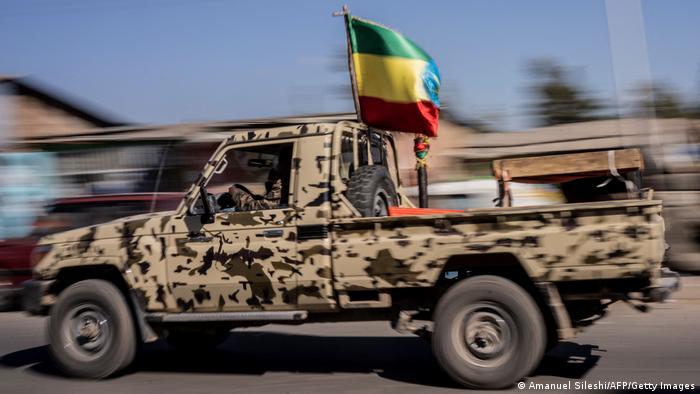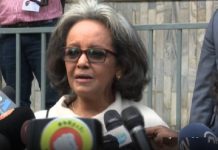Africa-Press-Ethiopia The Tigray People’s Liberation Front (TPLF) said the pullout of Tigrayan fighters from the Afar and Amhara regions was intended to pave the way for a cessation of hostilities, followed by peace talks.
The government of Prime Minister Abiy Ahmed, however, has downplayed the withdrawal announcement as an attempt by the TPLF to cover up a crushing defeat by the national army.
The Ethiopian government said in a statement released on Twitter that it wouldn’t command its forces to further advance into the Tigray region.
But it warned that the decision could be overturned if “territorial sovereignty” were threatened.
A rocky road to peace
Horn of Africa analyst Murithi Mutiga from the International Crisis Group called the TPLF’s withdrawal “a sliver of hope” for the eventual end of the civil war, which has been raging in Ethiopia for over 13 months.
Because of the deep mistrust between the warring parties, the obstacles to a sustained peace are “formidable,” Mutiga told DW in an interview from Nairobi, where he is based.
In addition, both Abiy and the TPLF enjoy “support bases which are very inflamed and extremely nationalistic,” Mutiga said.
Abiy will also have to tread carefully to avoid upsetting his closest allies, the Amhara, Ethiopia’s second-largest ethnic group.
The Tigray region and the Amhara region, which borders Tigray to the south, have been embroiled for decades in a dispute over land.
During the civil war, Amhara forces took control of several areas of this disputed territory in western Tigray.
Because of this, the Amhara may see any attempt to negotiate a cease-fire as a “betrayal” by Abiy’s government, Mutiga said.
The role of Eritrea
The same applies to Eritrea, which has been a stalwart supporter of Abiy’s since the start of the conflict in November 2020, even if both sides initially tried to hide the involvement of Eritrean troops.
Abiy was awarded the 2019 Nobel Peace Prize for making peace with Eritrea, his country’s longtime enemy.
Like Abiy, Eritrean President Isaias Afwerki views the TPLF as a threat to his hold on power. He also sees Tigray as a haven for Eritrean refugee dissidents.
Afwerki is likely to prefer continued war against the TPLF rather than peace talks, Mutiga said.
“Addis Ababa will have to be more cautious because they do not want to see a disintegration of the Ethiopian state,” he said.
But, as the fates of both Abiy and Afwerki are intertwined, “it is true that the Eritrean question will be one of the most difficult,” he added.
Atrocities committed by both sides
The US had been warning for months that it would implement tougher sanctions on Ethiopia because of the Tigray conflict and the atrocities associated with it.
“This war has been fought at a grave cost. We’ve seen massive atrocities. We’ve seen the use of rape as a weapon of war. We’ve seen forcible displacement and indiscriminate shelling of civilians. The armies have behaved very brutally,” said Mutiga.
Last week, the UN Human Rights Council in Geneva voted to establish an international commission to investigate reports of violations during the conflict.
Mutiga believes that the atrocities have to be investigated in order to foster a sustained peace.
But he has some words of caution: “I think everybody must tread very carefully to make sure that, while it’s absolutely imperative to pursue justice, initially, perhaps, the priority has to be stopping the shooting, stopping the fighting.”






